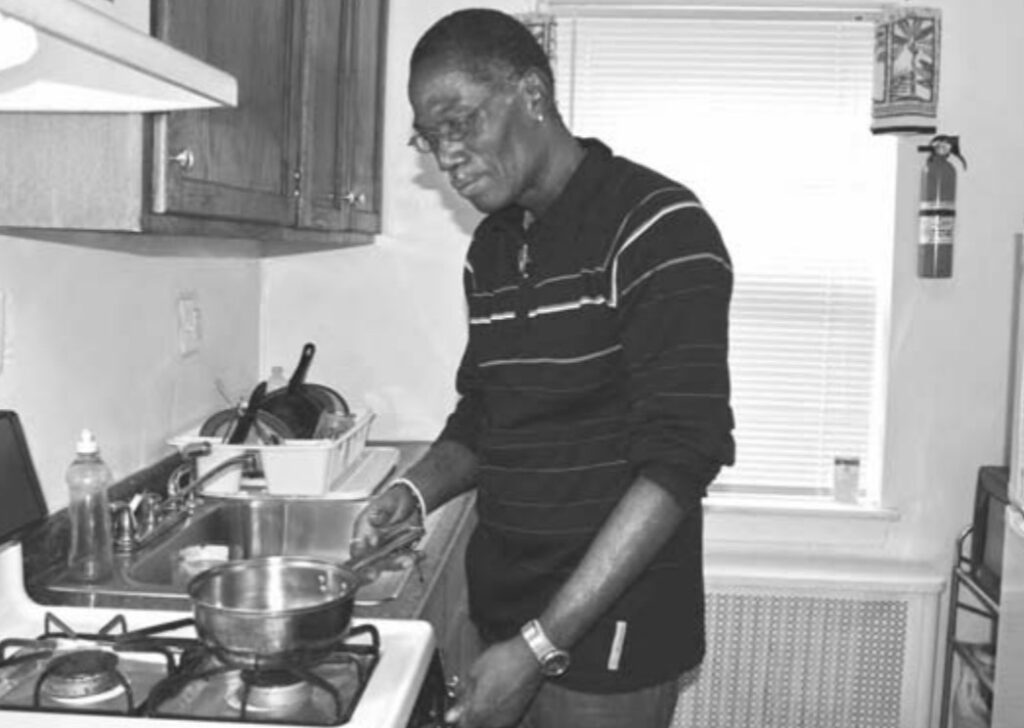Street Sense Vendor relays his story of war and homelessness
Back in the early 70’s, as Tommy Bennett said, they didn’t call it the Vietnam War. They called it a conflict.
At first, his job as a member of the U.S. Navy was just to watch the border; they weren’t supposed to be fighting. Then they got the orders to go to war.
Bennett’s focused gaze became distant as he recounted stories of the war. Although he wasn’t able to reveal any information about his mission, he said “I had to do what I had to do. When you got orders you’ve got to carry them out.”
Upon returning to the United States, Bennett and his fellow soldiers were faced with criticisms by protestors of the war, who called them “baby killers” and said that they had no business being in Vietnam. The veterans received therapy and were monitored for signs of Post-Traumatic Stress Disorder (PTSD). In addition to that help, Bennett and his friends from the war got together to talk about their experiences in Vietnam and helped each other through it, because nobody else understood what they had gone through. Some of his friends were so stressed they wanted to kill themselves, but he told them not to.
The world seemed changed. Depression enveloped him. He got help, but was still depressed. He drew into himself.
“I saw so much over there…When I get depressed, I don’t want to be around nobody,” he said.
To cope with the depression, Bennett started doing drugs and drinking. “I gave up,” he said. “I gave up on life. I gave up on everything… It was the seven most miserable years of my life.”
When he began using drugs, which he refers to as entering the “dark world,” he found himself without an apartment and living in shelters in D.C. He started off at the Franklin School shelter, in Northwest, and later, he moved on to 801 East in Southeast, or as he calls it, “Hellhole 32.”
He disliked having no privacy and always having to watch himself. The shelters were anything but home. So he made a plan to get out, to reclaim his life. Six years ago, he met a man named Jose, who told Bennett to give himself a chance and encouraged him to attend a Street Sense seminar. Although he was skeptical at first, “When I sold my first paper, I said ‘Oh man, this thing does work!’”
He turned to a treatment center to get help and his counselors told him he could start his life over. They stressed the need for him to surround himself with the right people, places, and things. He followed their advice. Bennett has now been sober for seven years.
Other fellows in the shelters where he was staying started turning to him for advice. He decided he wanted to pursue drug counseling as a career. To make this a reality, he is currently going to school to get his GED and is a junior drug counselor at his former clinic, where he is currently working with veterans from Virginia. He ultimately wants to help everybody, and not just veterans. “I can’t keep this, I have to give it away,” he said. “It’s not about me, it’s about helping.”

In the meantime, he kept up his fight for housing. And seven months ago, Bennett stepped foot in his own apartment in Southeast D.C. It’s a one-bedroom place. He smiled as he talked about its wall-to-wall carpeting, but the best part isn’t in the aesthetics: it’s having some place he can call his own. “I can go in there anytime I want,” he said. “[I can] watch TV, eat what I want to eat, relax, get peace of mind.”
In terms of advice for others, Bennett said you have embrace a goal and not let go. You must say to yourself “I’m going to do this thing. It’s mine. I’m going to get it.” Hope is a start, but the rest is work, Bennett says. “Hope is only getting halfway there.”




